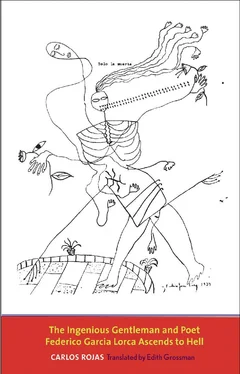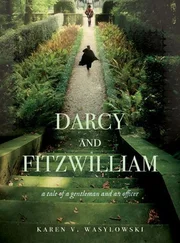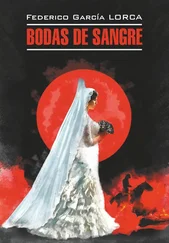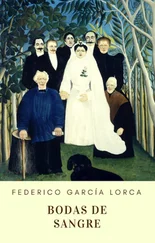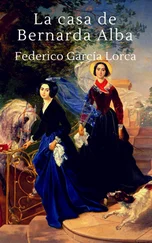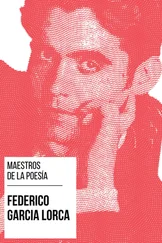And I laugh at and am ashamed of the poem, which like others of mine I could recite from memory. It said that if the coolness of linen and ivy ruled the mortal body, the one that would be snatched from me along with life, my profile would become the long unashamed silence of a crocodile on the sands of eternity. Its irrational expression, the only one adequate to the senselessness of my human fate, withdrew into apparently more intelligible forms in the final tercets. Rhyming llama (flame) with retama (flowering broom), I declared that my kisses numb with cold would not be made of fire in death but of dry, frozen broom. Free of meters and unities (with a touch of fairly insincere resignation), I foretold that I would be invisible, divided between glacial branches and grieving dahlias.
In reality, hell is a desert very different from the one sketched in that sonnet. It is a spiral, perhaps interminable, in which each of the dead has an empty theater with its curtains raised. I can leave mine whenever I choose through the paneled door that opens with a touch of my hand at one end of the auditorium. Outside, a corridor about ten paces wide slopes upward, which I have walked to the point of exhaustion and which forms part of an arc whose radius I cannot imagine, for the slope of the ground, though real, is almost unnoticeable. From the gradient curve I deduced that an infinite number of turns followed one another around the same center. On the walls of the corridor the transoms of the theater are repeated, fairly far apart but equidistant. The same chrysoberyl light, emanating from I don’t know where, keeps the orchestra section and the covered passage in identical semidarkness.
At times I stopped to think about the dimensions of hell. It must grow indefinitely, in constantly opening turns, adding new theaters for each new arrival. And it probably won’t close until the last human being comes here, and by then the spiral will be the size of the universe. Don’t ask me why or how I’ve come up with this calculation. I never went past adding on my fingers or multiplying next to the sign of X, but I’d swear I had the dimensions of hell right. Concluded and closed off, it would be as high and vast as the firmament. You could even say that then it would represent another firmament, invisible and parallel to our skies and constellations, empty of humans.
Like the transoms in the passage, the theaters on this spiral are equidistant. Farther along the corridor, a few hundred paces from my orchestra, is another identical one with the same stage opened at the back. I was there on several occasions but never could detect anyone in the auditorium, before I became certain that each of the dead is invisible to the eyes of all the others in hell. Whoever is there, for I sense that someone is being punished in that place, probably doesn’t evoke his life or his dreams too frequently, for the boards, beyond the proscenium and above the orchestra, are always empty. Even though we cannot see one another, perhaps by virtue of the design that subjects us to this solitude, the visions of our memories or the memories of our illusions are in fact visible when presented on stage.
The next theater, a replica of the previous one and of mine, just as one tear duplicates another, does serve as the setting for representations. Someone consumes eternity there, devoting himself to strange memories. Through the uncurtained arch, behind the proscenium, a northern city appears. One of those Baltic cities redolent of salt and sun, its light so brilliant and unreal it hurts your eyes beneath the lazy flight of seagulls. Towers, windows, trees, and clouds gleam like precious stones at the heart of a delirium. The houses have red tile roofs onto which discouraged gulls descend, shrieking, while in the distance a flock of storks flies south. On a frozen pond, children wearing caps of scarlet wool glide in ice skates. Gentlemen stroll in top hats along the shore, monocles attached to their lapels, escorting blonde, white-skinned women with blue eyes, their hands hidden in fur muffs. Lights begin to go on in garrets under sloping roofs. Sleepy goblins unwillingly rush to hide under beds and at the bottoms of cedar chests. In large cases of carved wood displaying cornucopias and gilded inlays, all the clocks strike the same hour, while a smiling old man roasts chestnuts at the fireplace in a drawing room. In another room, a lank-haired, extremely thin student in a frock coat and spats cuts out paper dolls with a tailor’s scissors for a little girl, while the scent of elderberry fills the air. Behind the windows of a shop, a cobbler polishes a pair of boots and sings as he works. His is a sad, languid melody that tells of the loves of roots formed by the man-drake in southern lands where men don’t believe in Satan. In the distance a herd of reindeer passes, their horns twisted, their lips pink with cold, their fur covered in frost. In a cabin two hunters warm their frozen hands over a pot where eucalyptus seeds are boiling. The brilliance of many snows has darkened their faces, and they wear sheepskin jackets with curved knives hanging from the waist. In a tavern at the port, fishermen with green eyes and black beards drink dark beer. They are broad shouldered though somewhat hunchbacked, and long scars crisscross their palms. The mounted head of a polar bear looks at them from the wall with its pink glass eyes. In the same living retable an elf in a nightshirt that is too long climbs the stairs of a bell tower, while the back of his shirt trails along the treads and risers of the steps. He carries a lit candle in one hand and a gold umbrella in the other. Brushes and brooms on his shoulder, a chimney sweep crosses the street paved with polished round stones. He is dressed all in black, and his very high top hat of German patent leather is pulled around his ears, like Raskolnikov before his crimes. He passes in front of a bronze statue of a king and queen whose endless shadow extends across the ice to the center of the lake. The monarchs are wrapped in ermine beneath the ruff of their collars and hold scepters in hands crossed on their chests, like the recumbent figures of other sovereigns lying on their tombs. Gulls rest on their shoulders and the wind from the Baltic whips their impassive faces, while evening descends across an amber sky.
Now everything suddenly changes on stage. The city has been transformed into an Italian villa, perhaps from the Renaissance. Next to a large window, a gentleman contemplates the dusk and sips distractedly from a glass of port. His trimmed, graying beard gives him a certain similarity to a figure by Veronese in The Wedding Feast at Cana . Perhaps to Aretino, who looks up to the heavens after the miracle is complete. In a darkened leather baroque chair with carved armrests sits an old woman in mourning who may be his mother, to judge by their vague resemblance. Through lace cuffs one can catch glimpses of her tiny white hands, furrowed with blue veins. In her right hand she squeezes a Mechelen handkerchief as she reprimands the nobleman in a German I don’t understand. The same salmon-pink late afternoon shines through the windows of a painter’s studio where a cardinal is posing. His mouth has the implacable expression of one who has seen the ghosts of poisoned popes slipping at Advent through the labyrinths of the Vatican rose garden. Very soon, in the semidarkness, his habits will flame like embers enlivened by a gale, while his dark eyes glitter beneath his brows. Around a solid marble table, the kind they say Blasco Ibáñez once had, thirteen velvet-clad councilors conspire in quiet voices. They have identical hands and faces, like thirteen twins. A perspiring rider gallops down the steep street, spurring his horse. At the door of an inn, a plump hussy, her breasts bare, calls to him by name and laughs, arms akimbo. As he passes he lashes her face with his whip, not stopping. A landscape of vineyards opens behind the city. The vines climb the slopes of the hills, cut into terraces of earth as red as cinnabar. Farther away blackbirds fly over a pine grove that perfumes the air with resin and honey. Yellow bees alight on the beds where fennel, thyme, bergamot mint, and pennyroyal all flower. A cloud of martins screeches and a snake slithers into the heather. Slow-moving white oxen, their haunches spattered with dark scabs, the inner corner of their eyes black with flies, come along the path pulling a wagonload of hay. They are led by a drowsy, barefoot boy, his torso bare, who sings a tune in an Italian I don’t understand either. On the square a squad of soldiers parades to the roll of drums, as Milanese and Vatican standards wave. Muskets at the shoulder, a dagger at the waist, gored breeches, polished helmets, breastplates gleaming, mercenary beards and smiles, the troop opens before the church. At the open main door a naked woman appears, her flesh as fair as if exposed for the first time to the light of heaven. She has the gaze of one possessed who perhaps has forgotten her own visions or was blinded when she contemplated them. Her deep black hair falls over her breasts and back while the soldiers present their arms to her, their harquebuses raised to the sun of an afternoon as luminous as on Corpus Christi. The crowd presses as she passes and roars in a frenzy: “ Viva, viva la ragione nuda e chiara! ”—Long live naked fair reason!
Читать дальше
